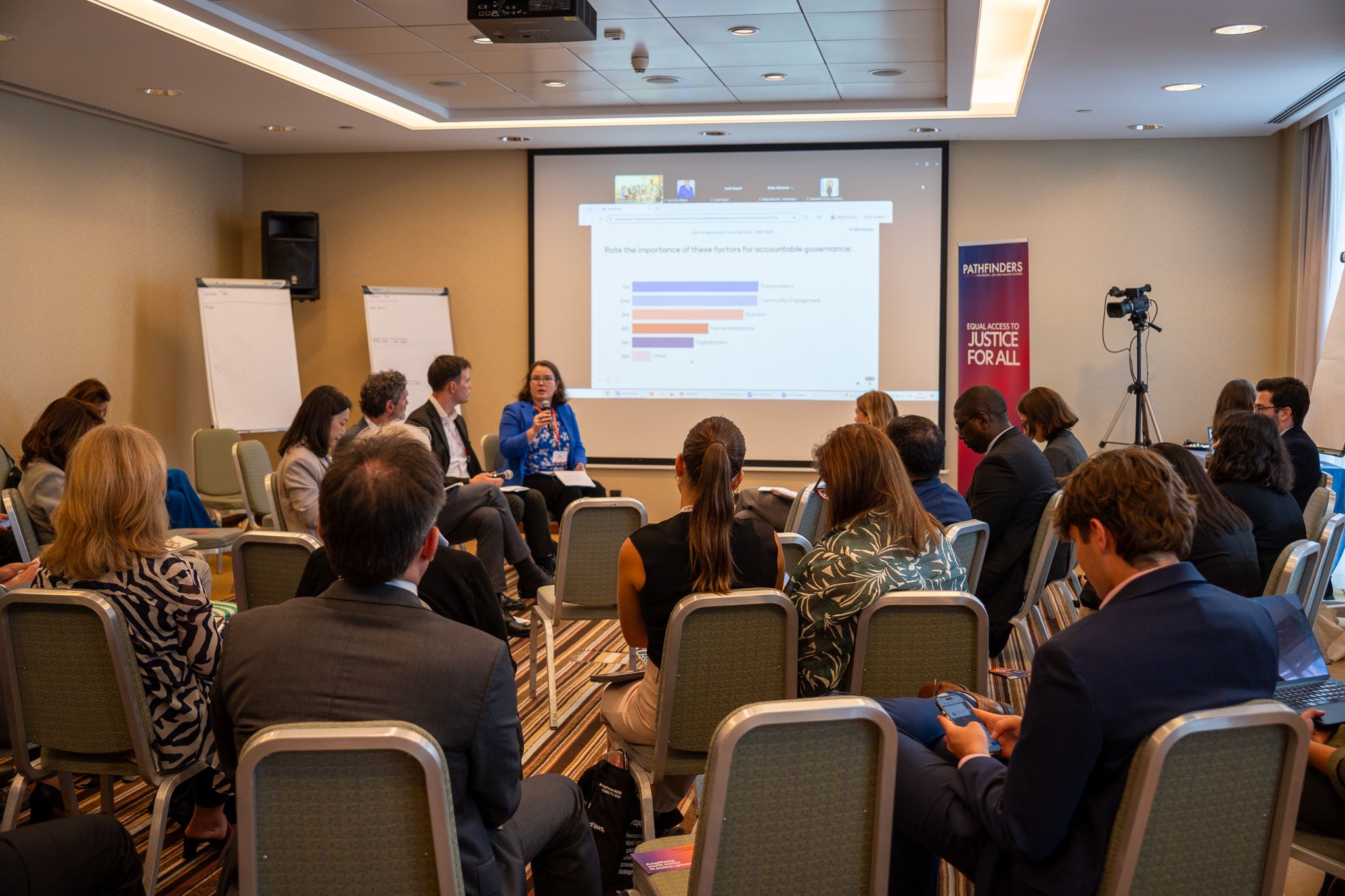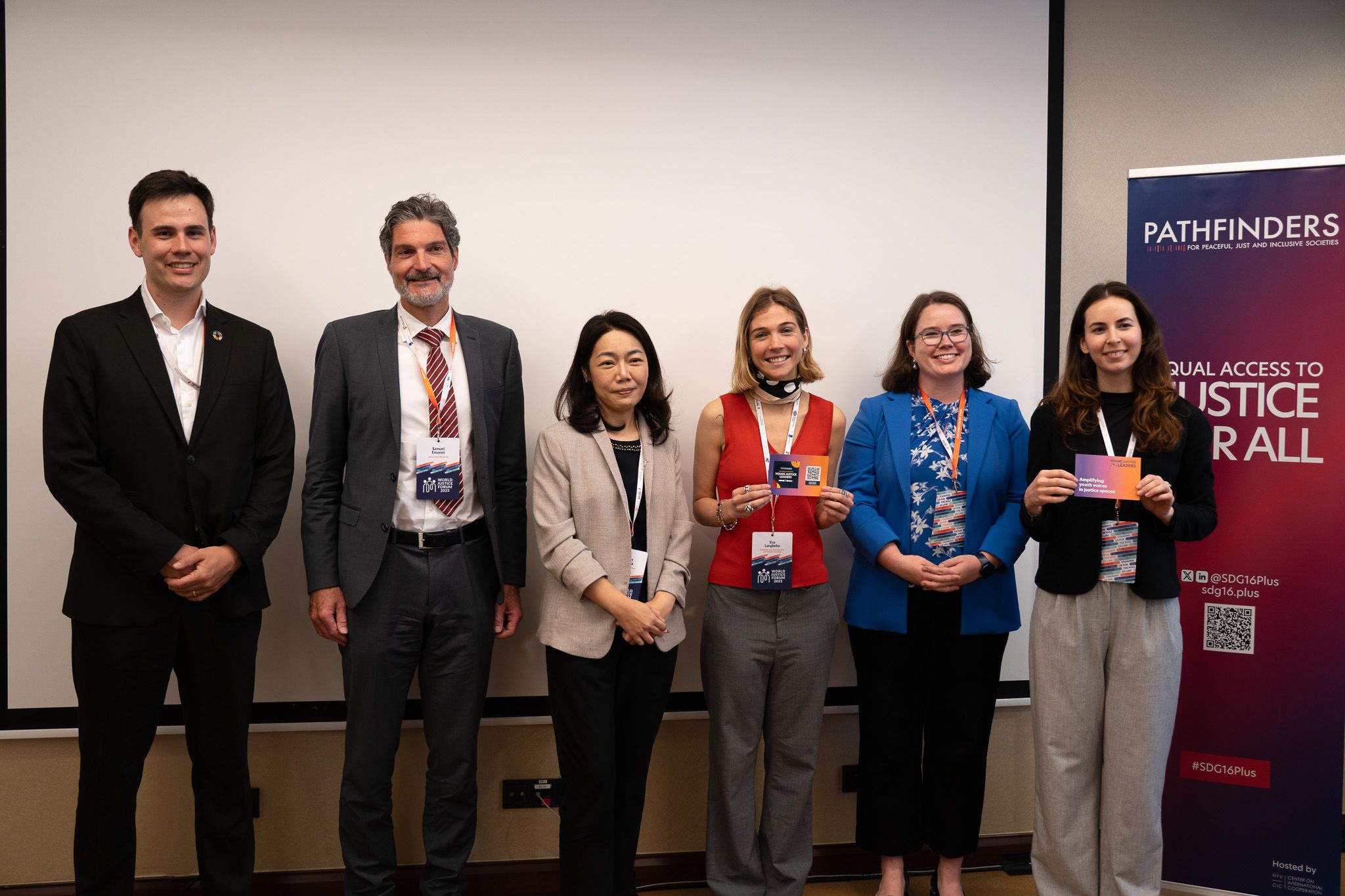Young Voices with Bold Visions Reflect on the World Justice Forum 2025
Authored by the 2024–2026 Young Justice Leaders cohort
Over the course of four days, the Forum brought together more than 500 participants from over 100 countries. Government officials, civil society leaders, academics, legal professionals, journalists, and technologists came together to assess the current state of the rule of law and explore ways to respond to its erosion. This year’s edition focused on an increasingly urgent agenda: how to address the global recession in democratic norms and legal accountability, and how to strengthen institutions in the face of authoritarian expansion.
Citizen Participation in Justice Spaces
One of the clearest themes that emerged was the importance of rebuilding public trust in justice institutions. In plenaries and breakout sessions alike, participants emphasized that restoring confidence requires not only transparency and institutional reform, but also a renewed focus on citizen participation. The justice sector can no longer operate as a technocratic space. People-centered approaches that are grounded in local knowledge, accessible information, and co-created solutions were consistently highlighted as essential.
Youth Leadership at the Forum
In that light, the role of youth in justice transformation has been brought into sharper focus. While youth engagement has often been treated as a separate stream or an added priority in global justice conversations, the Forum demonstrated that young people are already helping to shape and sustain justice systems. They are doing so by founding civic tech start-ups, leading legal empowerment initiatives, contributing to community-based conflict resolution, and informing institutional reform processes with innovative thinking.
Young leaders were visible throughout the Forum. They were not confined to youth-specific spaces, but embedded in core discussions on governance, digital rights, financing, and environmental justice. Several working sessions highlighted youth-led efforts to develop legal literacy tools, expand access to rights information, and integrate AI into justice delivery while raising critical concerns about the ethical and regulatory dimensions of new technologies. Discussions often turned back to the need for participation that moves beyond tokenism. Youth leadership is most impactful when it is embedded at every stage of policy and institutional development: from agenda-setting and design to implementation, monitoring, and reform.
The broader agenda of the Forum was shaped by the launch of the Warsaw Principles for the Rule of Law. The Principles are a set of commitments designed to guide global responses to democratic erosion. These principles span a range of areas, including judicial independence, access to information, regulatory safeguards for digital governance, and support for civic actors. While targeted at governments and institutions, the principles also provide a framework that youth-led initiatives can adopt and apply. They offer language, structure, and accountability mechanisms that support advocacy and programmatic action.
Youth Leadership and Accountable Governance
In this broader context, we, the Young Justice Leaders, contributed to a working session on youth leadership and accountable governance. Held in an open fishbowl format, the session featured reflections from young and senior leaders alike. Topics included the simplification of legal information through AI, the role of youth in addressing overlapping justice challenges related to climate and migration, and the importance of reimagining civic participation in ways that reflect lived experience. While one of many sessions with youth leadership at its core, it reinforced a central point: inclusive governance is strengthened when young people are co-creators of systems and policies.
We are deeply grateful to Dr. Arpamart Chanmeka of the Thailand Institute of Justice and Mr. Samuel Emonet of Justice Rapid Response and for truly walking the talk when it comes to engaging with youth. Their willingness to engage with us, young leaders, as equals in these critical discussions exemplified the collaborative spirit that made this conference so impactful.

Throughout the Forum, there were signs of meaningful intergenerational collaboration and examples of where progress is already being made. It is clear that young people are not only contributing ideas, but also building models, shaping outcomes, and driving legal innovation.
As the Forum drew to a close, the call to action became even more focused: invest in youth, protect civic space, and deepen cooperation across generations and sectors. The challenges facing the rule of law today, such as disinformation, ecological breakdown, misuse of technology, and institutional distrust require coordinated, multi-level responses. Youth-led approaches are already showing what is possible when communities are empowered to lead change.
The World Justice Forum 2025 offered no single blueprint for transformation. Instead, it provided a space for alignment, shared learning, and forward momentum. At the heart of these efforts were voices demanding truth, inclusion, and accountability. Those are not distant goals, but conditions that define whether justice systems can serve people effectively and equitably.
Maria Ressa’s words continue to resonate. Not rhetoric, but as a reminder of what is at stake. Freedom and justice depend on our collective ability to defend facts, support youth leadership, and shape institutions that respond to the needs of all.
